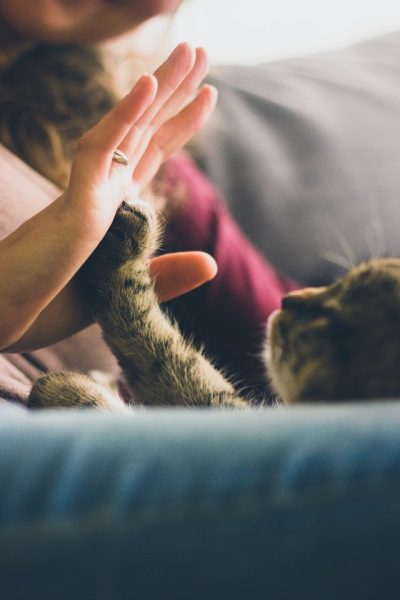
Cat lovers agree that there is no substitute for a feline fur baby for love, companionship, and entertainment. They cannot imagine their lives without a kitty for company. Despite their reputation for being aloof and disinterested, cats are loyal, affectionate pets who develop deep bonds with their human owners.
As a pet owner, you want the best for your kitty and will do what is necessary to ensure that they get it. It is a small price to pay for the unconditional love and joy that having a cat brings you. Use these tips to keep your cat healthy and have it live a long life with you:
Dietary requirements
You should always be aware of your cat’s dietary requirements to ensure that the food you provide fulfills them. You should always follow the nutrition of your cat and it is advisable to augment your kitty’s diet with some immune support or anti-hairball supplements. If your cat is suffering from urinary tract infection or Toxoplasmosis, there are various supplements such as vitamins, paste supplements, or organic treats for cats that play an important role in the cats’ health. If your cat has the symptoms of UTI, you can incorporate various treats, especially the organic treats for cats with kidney disease as they are created by organic ingredients which will not harm your cat. Adding extra vitamins and minerals to your kitty’s daily food intake improves their overall health and well-being.
A cat’s dietary needs change over its lifetime. For example, the nutrients a kitten needs differ vastly from a senior feline. Therefore, always follow the age guidelines on your cat food packaging. Cats typically need a lot of protein to sustain their bodies, keeping them healthy. Younger cats require more proteins due to their high-energy activities. As a cat ages, it is less active and requires fewer proteins. In addition to protein requirements, cats also need carbohydrates, oils, vitamins, and minerals. Owners should always read the ingredients list carefully when choosing cat food.
Another thing felines rely on from their food is fluid. Cats tend to drink too little water, causing bladder and kidney problems. Moist food contains the highest liquid levels, keeping your kitty well-hydrated. You can combine it with semi-moist and dry food brands. Eating a variety of foods is good for your cat’s digestive system and maintains its dental health.
Home environment
A healthy, happy cat needs a stable, comfortable home where it feels safe and secure. Cats thrive on certainty and routine as it prevents them from experiencing anxiety. While cats tend to drape themselves anywhere in your home, they need a special bed where they can retreat to sleep. Cats are territorial creatures, and having a space to call theirs is vital for their overall well-being.
Train your cat to use a litterbox for its bathroom needs. It is advisable to have more than one litter box, especially if you own multiple felines. The suggested ratio is to have a litter box per cat plus one extra. Clean litter boxes frequently and freshen up the litter. A dirty litter box is smelly and could potentially transmit various infections and diseases.
Cats are susceptible to parasites like ticks, fleas, and worms. Know the signs of such infections as they are unpleasant and will cause your cat some discomfort. Use tick and flea treatments to ensure your kitty’s fur is clear of parasites. Frequent deworming is necessary for cats, especially those that spend time outdoors.
Cat owners should keep their homes clear of poisons and other hazardous substances and objects by putting them away in closed cupboards and drawers. Felines are curious and adventurous and will go to great lengths to get to things they should avoid.
Long-term care
Cats are thorough self-groomers and will spend hours licking and cleaning themselves. While they do this, they swallow a lot of fur. The hair accumulates in their digestive system, forming a furball. The cat ejects this clump of hair by vomiting. It is an unpleasant experience for the feline and its owner. The best way to avoid having your cat develop hairballs is to comb it frequently. It gets rid of excess hair without it entering your kitty’s digestive tract. You should also ensure that your cat’s diet contains vitamins and minerals to keep its fur healthy and shiny.
Unless you intend to breed with your feline, it should be spayed or neutered to avoid unwanted pregnancies. With so many rescue cats available, there is no need to contribute to a burgeoning feline population. In addition, spaying and neutering reduce a cat’s chances of developing certain cancers as they age.
As a responsible cat owner, take your kitty to the vet at least once a year for a thorough checkup and vaccinations. Early intervention can prevent minor ailments from becoming severe, life-threatening illnesses.
Cats are playful and enjoy playing with their owners. Physical activity keeps them healthy and promotes bonding with others. Cats need to climb and explore their environment. Provide yours with a cat tree and scratching post. Buy toys to entertain your cat as it prevents them from wrecking household items and furniture. Carve out time to play with your feline while also teaching it to occupy itself when you are not home.

